Tankless vs Tank Water Heater: Which is Right for Your Las Vegas Home?
When selecting a water heater for your residence, you have two options: a tank or a tankless model. Let's delve into both types, examining factors such as cost-effectiveness, maintenance, installation, and lifespan. Armed with this information, you can make an informed choice. Feel free to ask for further assistance if needed!

What is a storage tank water heater and how it works?
Storage tank water heaters are widely utilized in residential and commercial settings, serving as a dependable solution for heating water. These systems function by storing water in a designated tank and subsequently heating it as required. Heating elements or burners present within the tank facilitate the water heating process, allowing it to be easily accessed through faucets and other outlets. To prevent heat loss and preserve the desired temperature, the tank is equipped with insulation. Despite the growing popularity of tankless water heaters, storage tank water heaters continue to be favored by numerous individuals due to their reliability and cost-effectiveness.

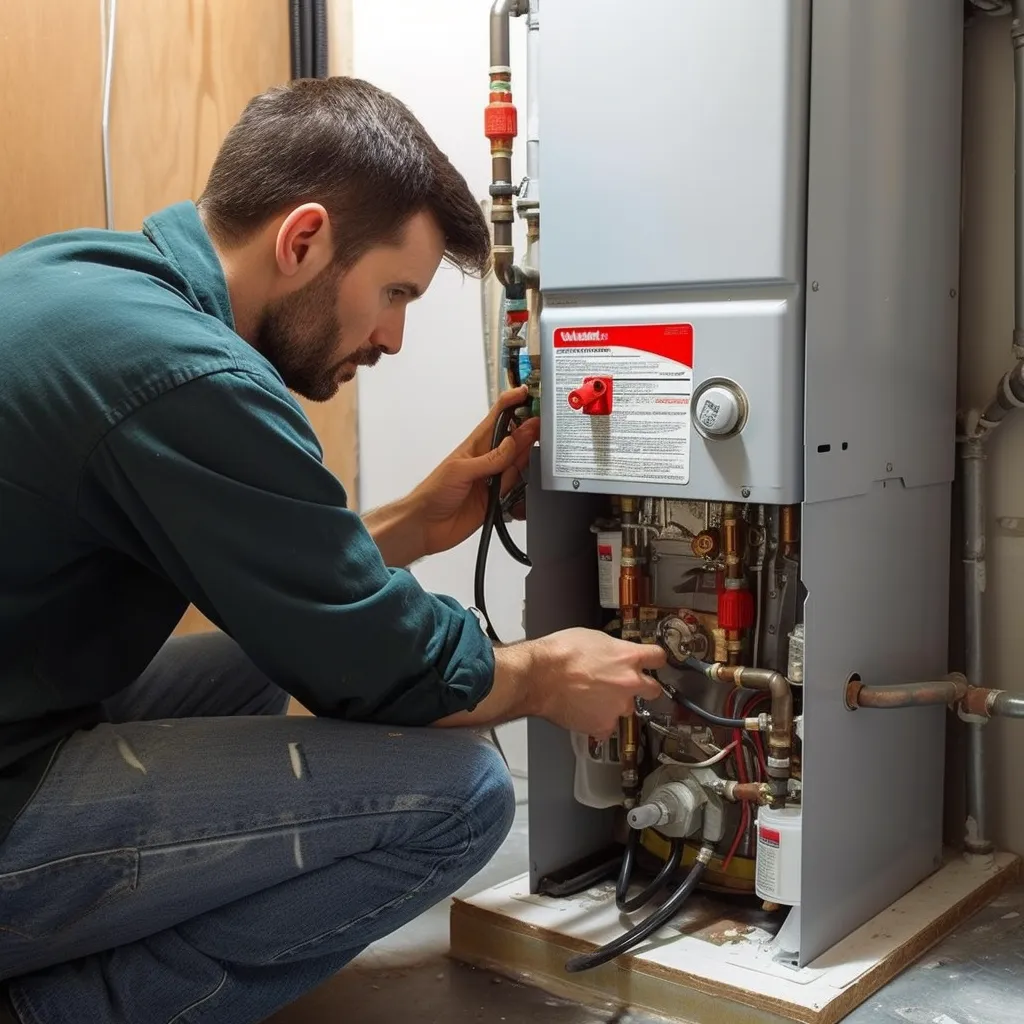
Benefits of a tank water heater
Tank water heaters offer many benefits:
They serve as a cost-effective alternative to tankless models, offering lower upfront acquisition and installation costs.
Their larger storage capacity ensures a consistent and uninterrupted supply of hot water for homeowners.
Tank water heaters experience fewer malfunctions compared to tankless models, which greatly enhances their reliability.
These water heaters require lower maintenance costs, potentially leading to savings on repair expenses in the long run.
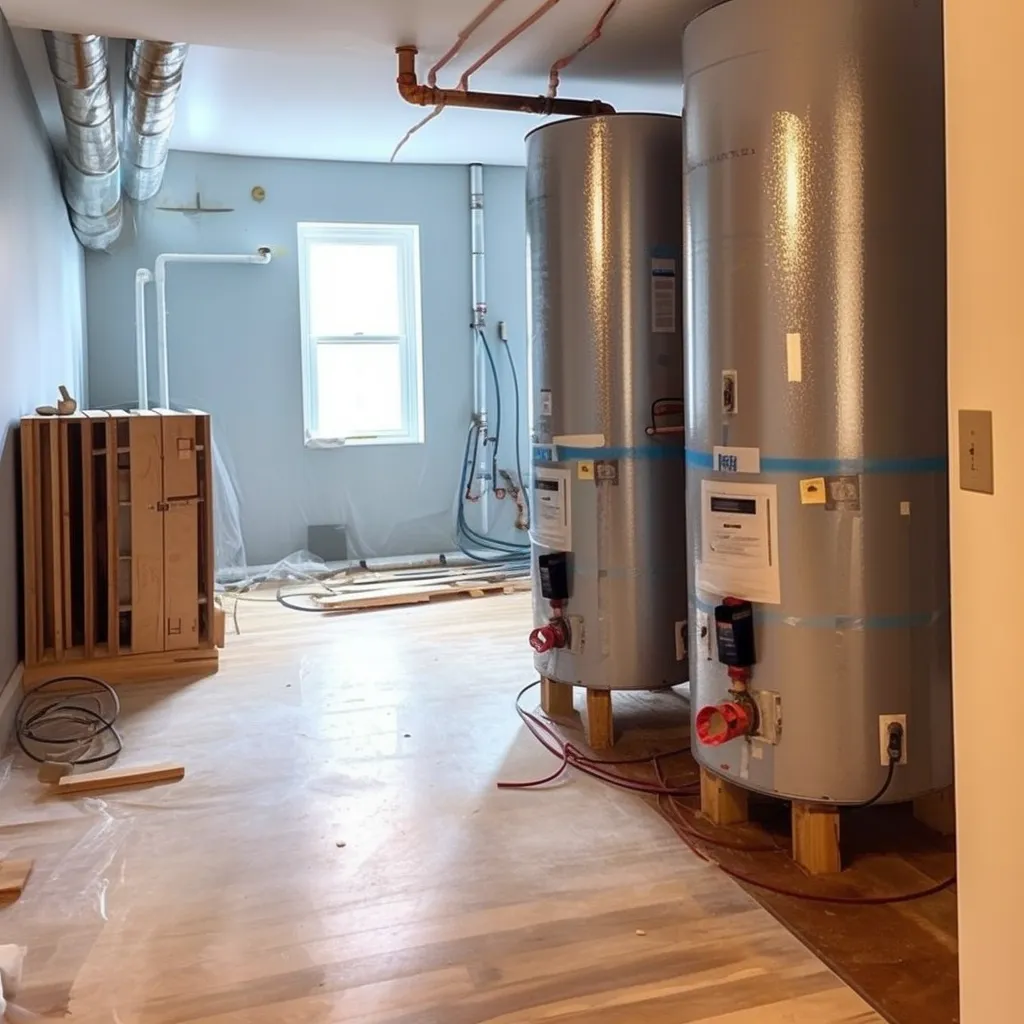
What are the drawbacks of a tank water heater?
Tank water heaters come with a few disadvantages:
Tank water heaters tend to occupy more room compared to tankless heaters. This can pose a challenge for households with limited space availability.
Another drawback is their energy efficiency, particularly in older models. These older tank water heaters are typically less energy efficient, leading to higher utility bills over time.
Tank water heaters have a limited lifespan of about 8-12 years. In contrast, tankless systems can last up to 20 years, making them a more durable choice in the long run.
One inconvenience associated with tank water heaters is the possibility of running out of hot water. When the hot water in the tank is depleted, it can take a considerable amount of time to reheat, causing inconvenience, especially for households with high hot water usage or multiple users.
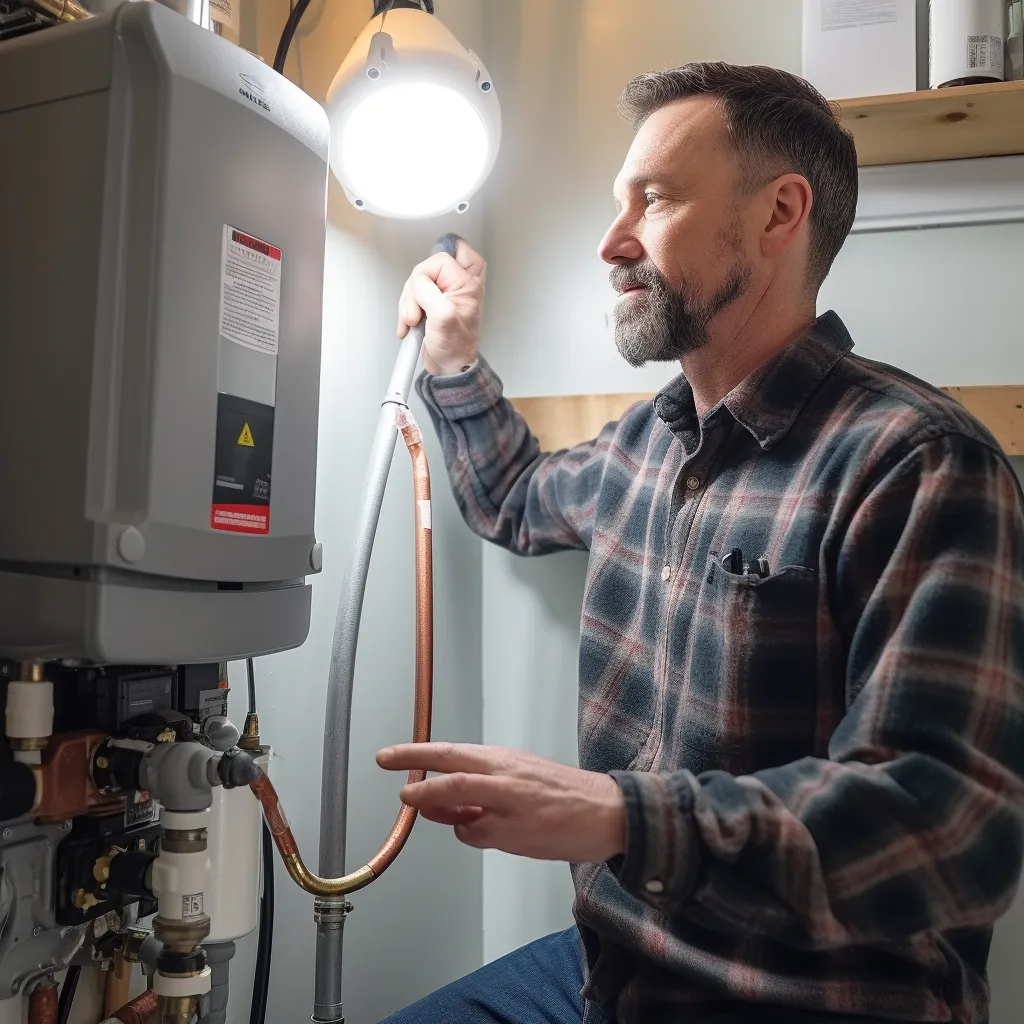
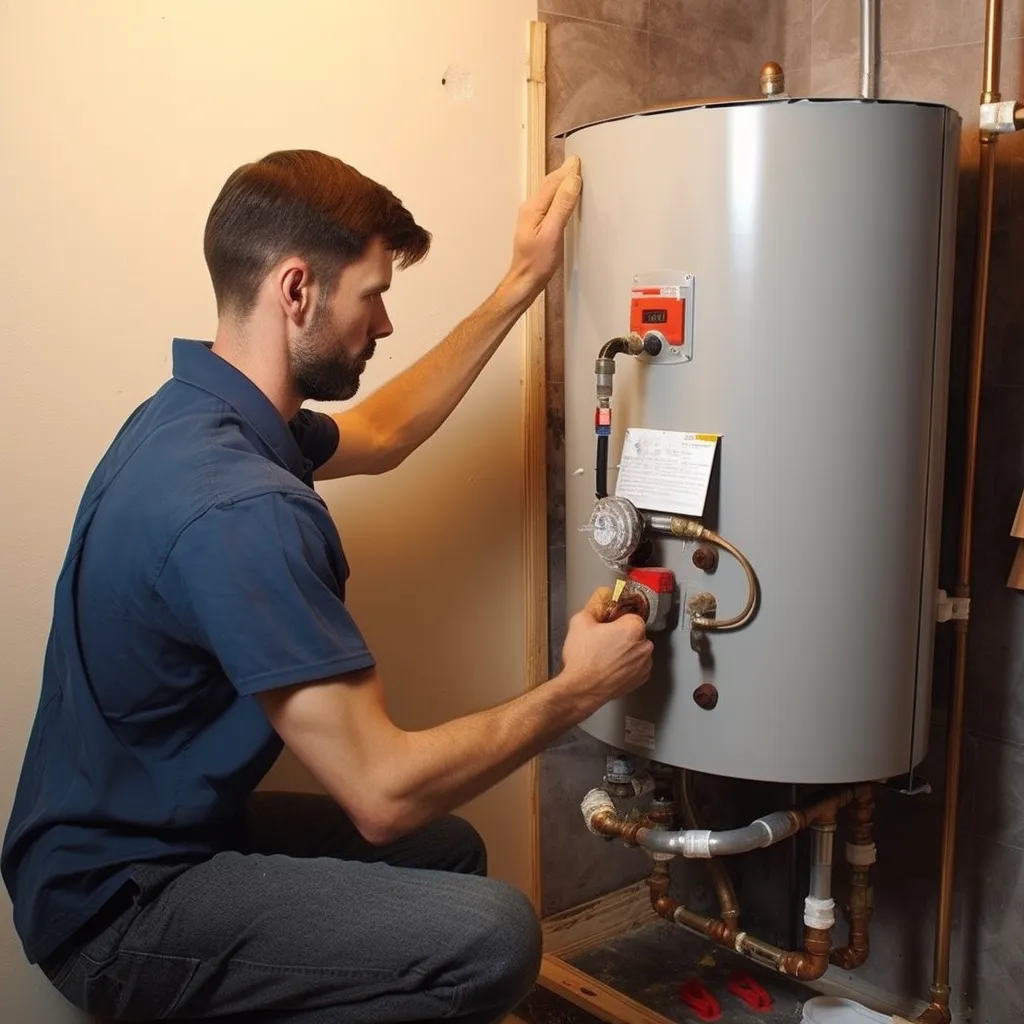
What is a tankless water heater and how does it work?
Tankless hot water heaters offer a convenient solution for accessing hot water on demand. By heating water as it passes through the unit, these innovative models eliminate the requirement for a large storage tank. Consequently, you can enjoy the luxury of instant hot water whenever it is needed. Let's delve into their functioning: Upon activating the hot water faucet, the unit initiates its operation. Cold water enters the system and travels through a heat exchanger. In a swift process, the heat exchanger rapidly raises the temperature of the water, enabling you to receive hot water directly from the faucet without any noticeable delay. With tankless hot water heaters, satisfying your immediate hot water needs becomes effortlessly efficient.
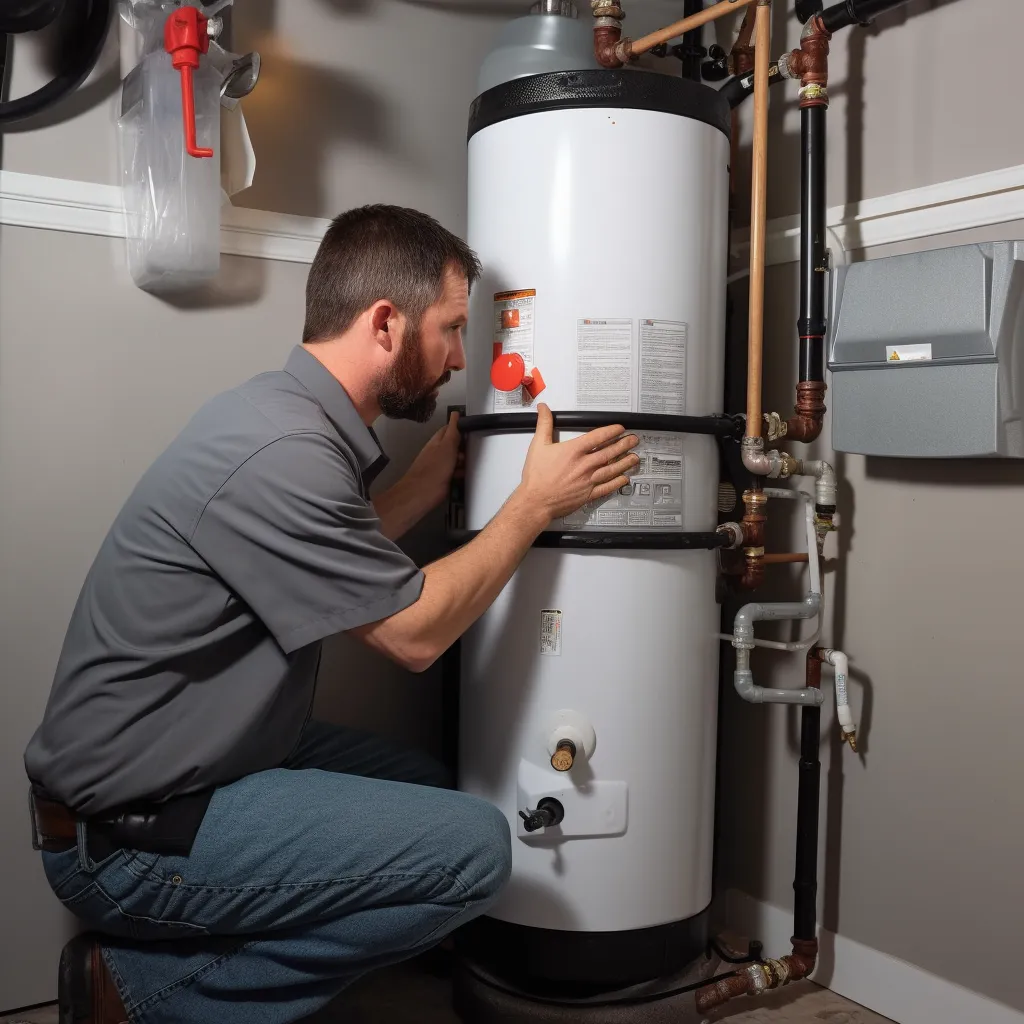
What are the benefits of a tankless water heater?
Tankless water heaters have become increasingly popular among homeowners across the country, primarily because of their multitude of advantages, including:
Their energy efficiency, which not only helps reduce utility bills, also provides significant energy savings.
Another noteworthy benefit is the availability of hot water on demand, ensuring an endless supply of hot water whenever it is needed.
Tankless water heaters are known for their space-saving design, requiring considerably less space when compared to traditional tank water heaters.
These advanced units have a longer lifespan, typically lasting 15-20 years, surpassing the durability of traditional tank models.

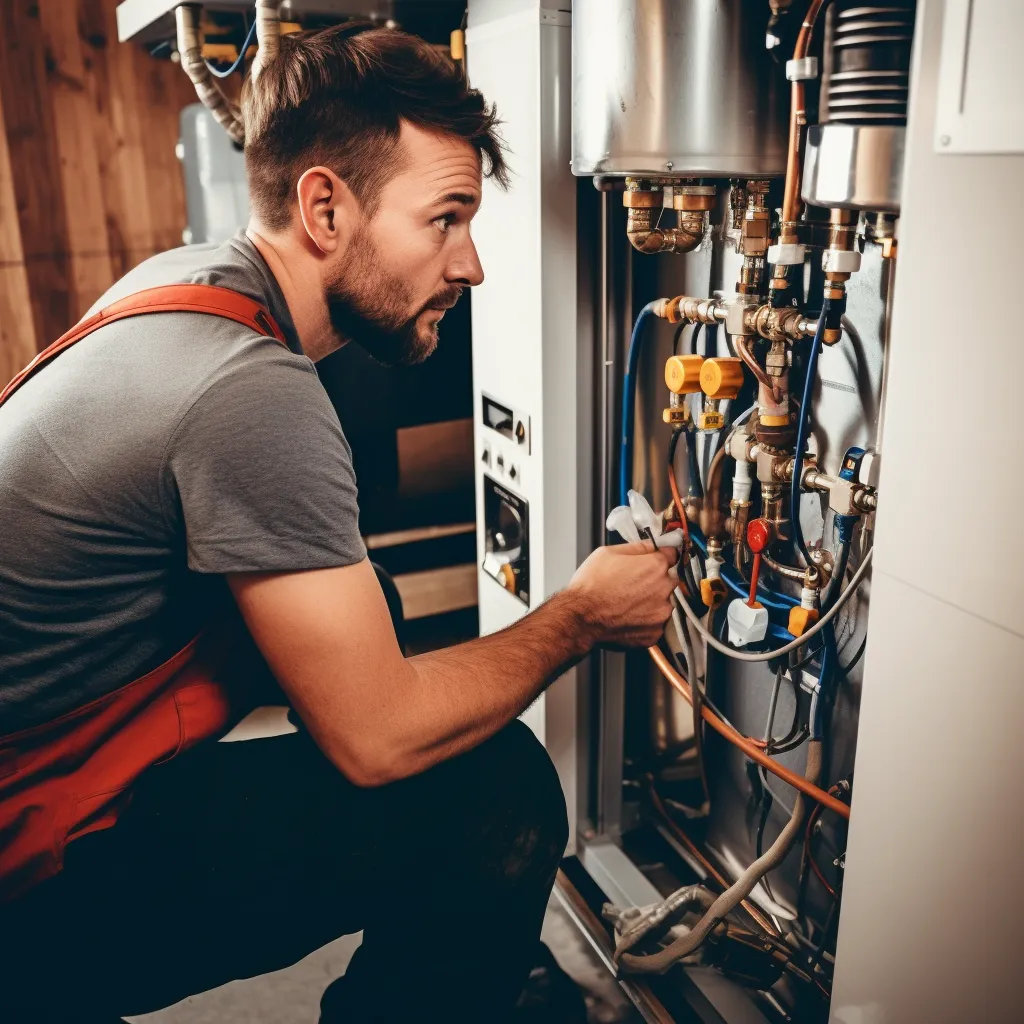
What are the disadvantages of a tankless water heater?
While tankless water heaters offer several advantages, they do come with a few drawbacks to consider:
They tend to have a higher initial cost compared to traditional tank water heaters.
There may be limitations on the flow rate, particularly when multiple hot water outlets are being used simultaneously.
Another point to consider is the specialized installation and maintenance requirements of tankless water heaters, which often necessitate professional assistance.
There is the possibility of experiencing what is known as the "cold water sandwich effect," where a brief burst of cold water occurs between periods of hot water usage.
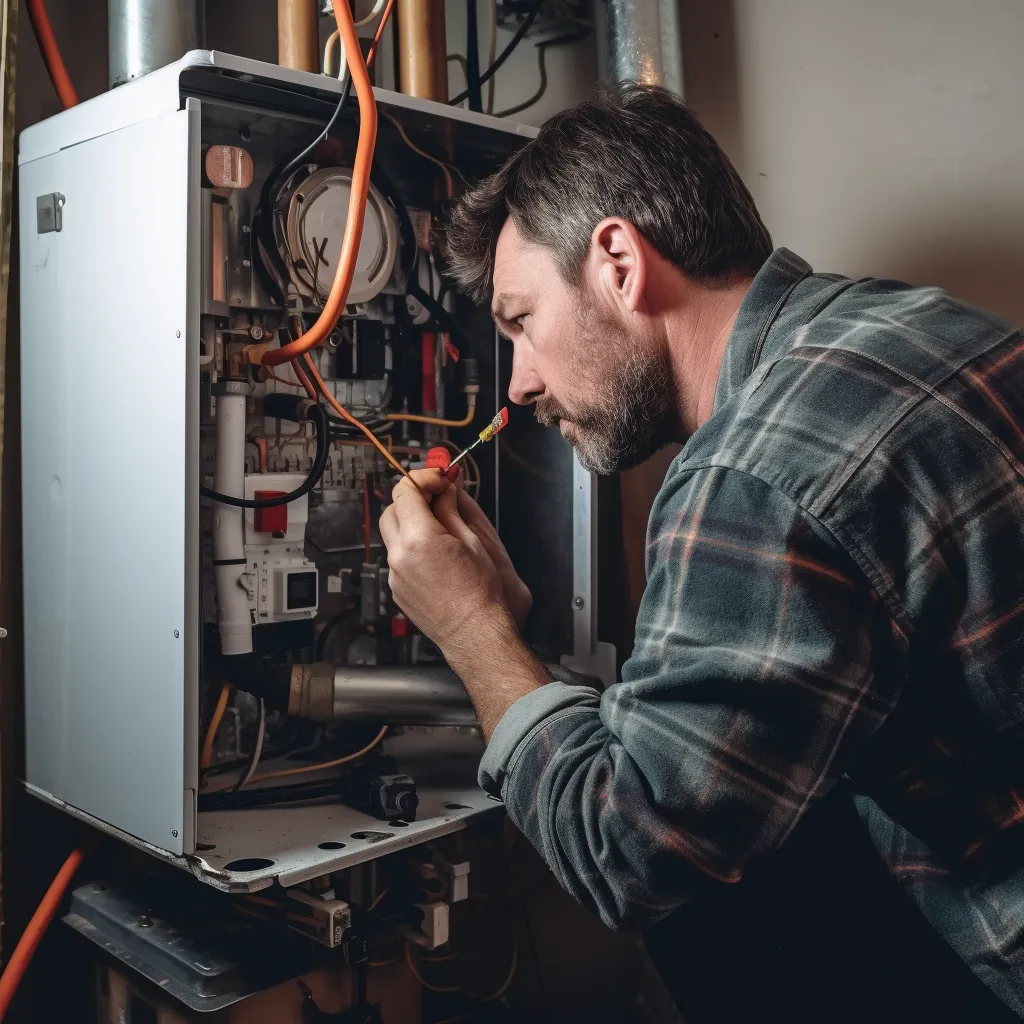
Are storage tank water heaters energy-efficient?
Traditional water heaters with storage tanks have long been criticized for their high energy consumption. These units tend to keep heating water continuously, regardless of whether it is being used or not, which ultimately leads to reduced energy efficiency. However, manufacturers have made significant advancements in tank models, enhancing their insulation and heating capabilities. As a result, these newer tank-style water heaters are now able to deliver higher energy savings. Although they may not be the most eco-friendly alternative available, they continue to be a dependable and convenient choice for numerous households.
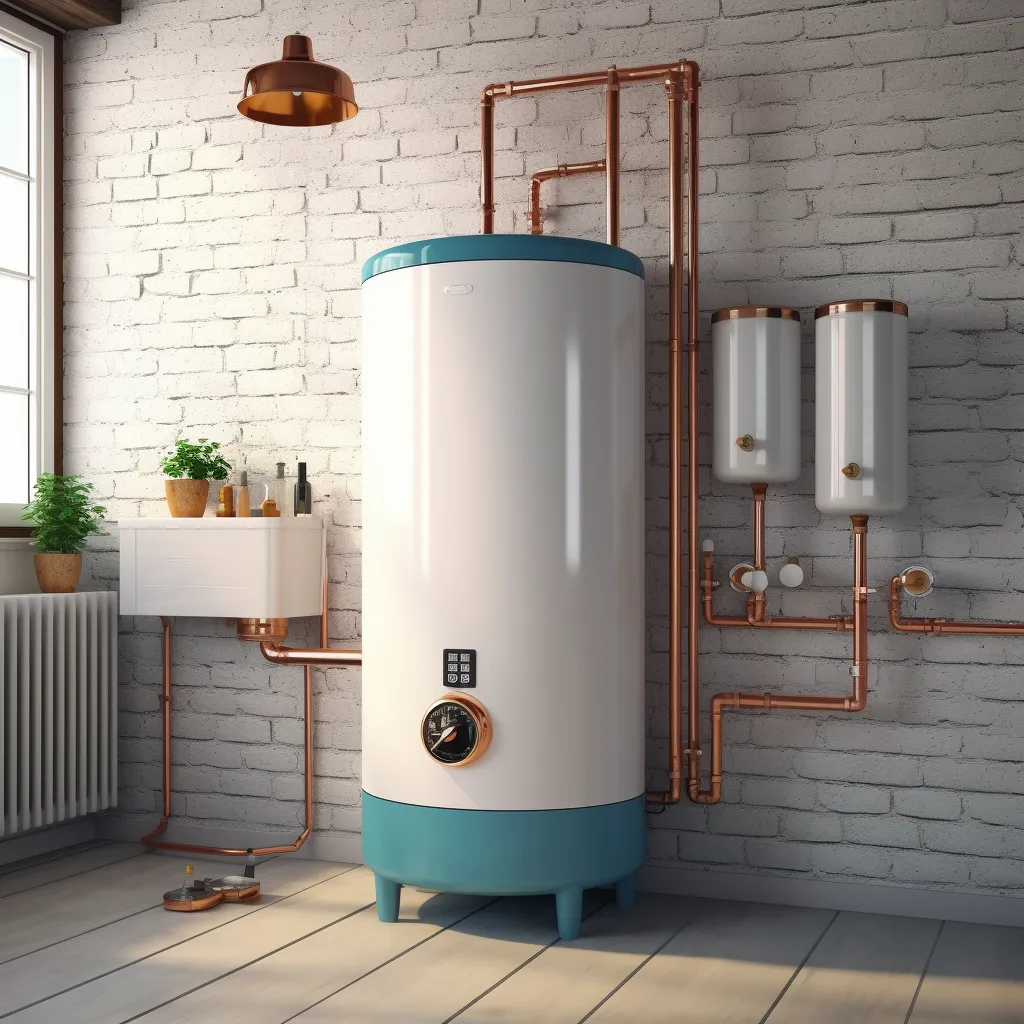
Are tankless water heaters energy-efficient?
Tankless water heaters have gained significant popularity among homeowners for their remarkable energy-saving features and cost-effectiveness. Compared to conventional tank-based models, these water heaters can be up to 34% more energy-efficient. The key to their efficiency lies in their ability to heat water on demand, eliminating the need for constant heating and storage. By only heating the water as needed, tankless water heaters effectively reduce both energy consumption and long-term costs. Consequently, they have become a highly practical option for homeowners seeking an efficient and economical solution for their hot water needs.
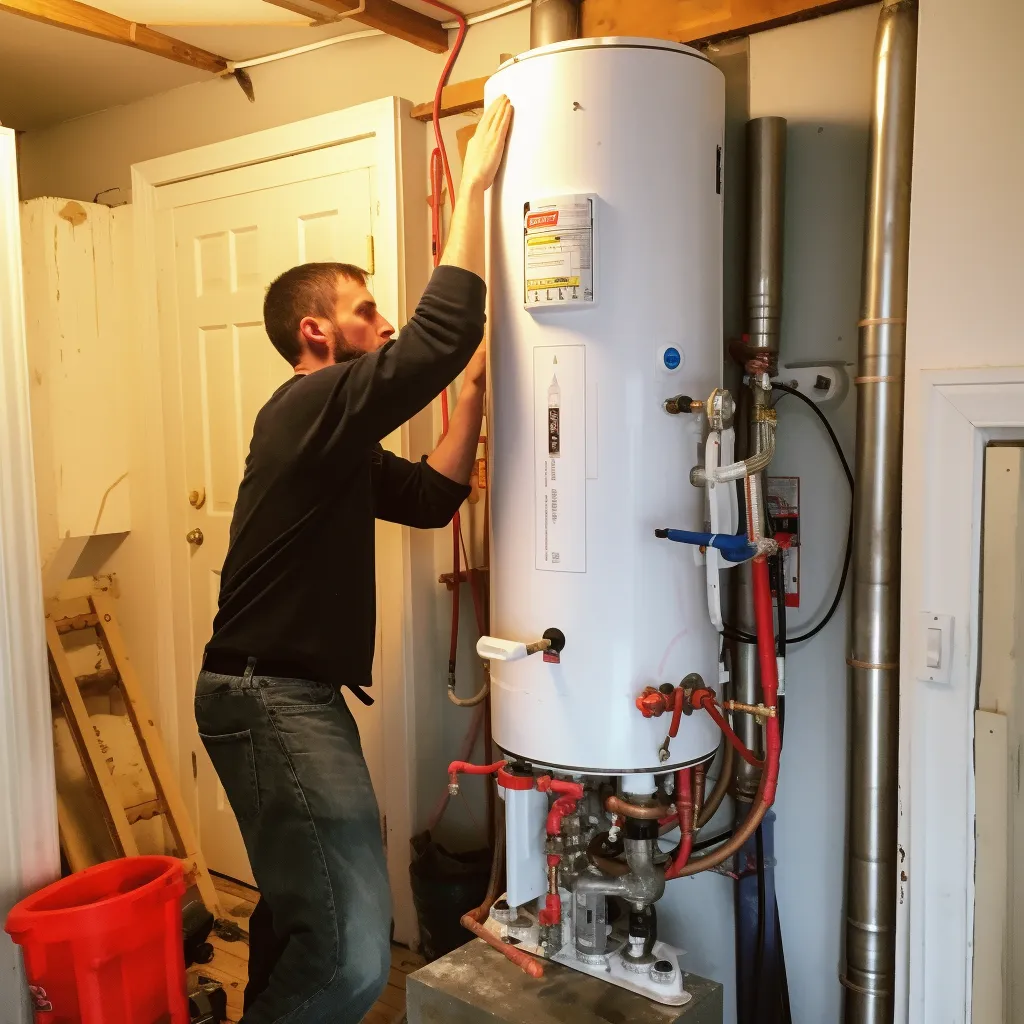
Cost to buy and install
a tank water heater
When it comes to tank water heaters, the cost can vary depending on their size and type. Typically, prices fall within the range of $500 to $2,000. Keep in mind that choosing a more advanced model with extra features can drive up the overall expense. On top of that, installation expenses can go up to $1,500, which largely depends on local labor rates and the plumbing conditions in your home. It's worth noting that for the installation, you will need a dedicated electrical circuit and a reliable gas line. It is crucial to select a tank size that aligns with your household's hot water requirements to ensure an ample supply for everyone in your home.
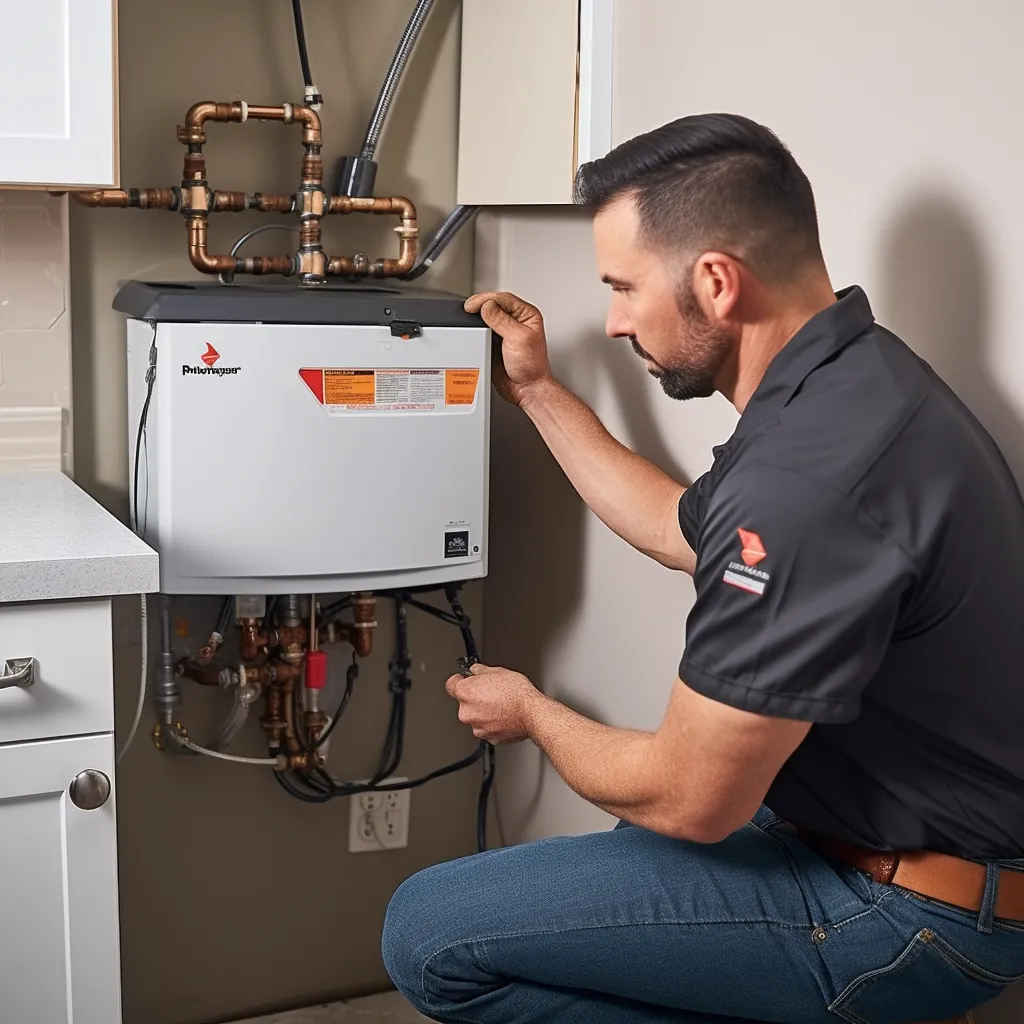
Cost to buy and install
a tankless water heater
Tankless models offer several advantages despite their higher price tag. Typically, tankless water heaters are priced between $1,000 and $3,000, making them a more significant investment compared to traditional models. Similarly, installation costs can vary from $500 to $2,000, influenced by factors like your home's plumbing setup and local labor rates. Unlike conventional water heaters, tankless units operate without a storage tank, relying on a larger gas line and an electricity source instead. Consequently, it's essential to assess your home's infrastructure to ensure it can handle the increased energy demand of a tankless system. Furthermore, selecting the appropriate unit size based on your household's hot water requirements is critical to achieving optimal performance.

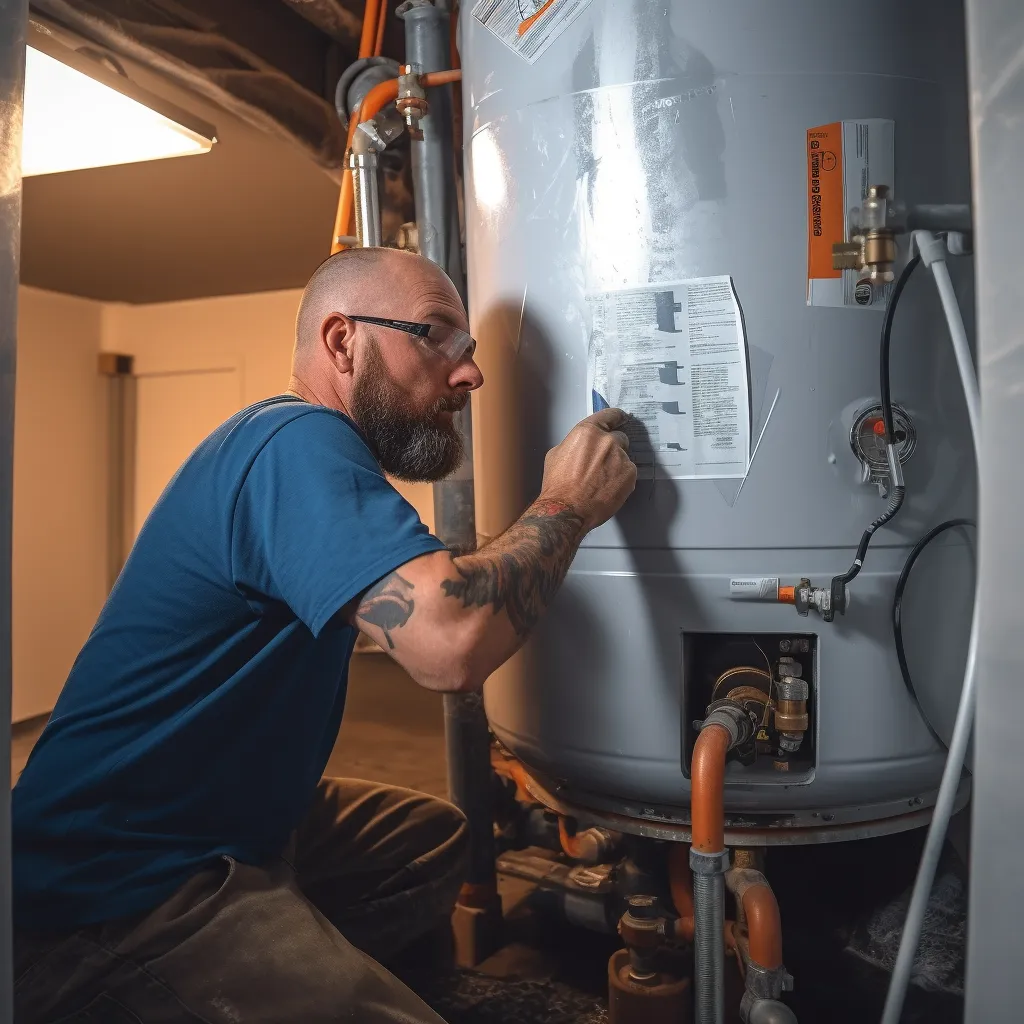
Common storage tank water heater maintenance issues
There are several common maintenance issues with storage tank water heaters that you should be aware of:
One of the most troublesome problems is a leaking tank, which can not only cause water damage but also require costly repairs. To prevent any further complications, it is important to conduct regular inspections and promptly address any leaks that are detected.
Another issue that can arise with storage tank water heaters is corrosion. This can occur in the tank itself or in its components, leading to a reduction in the system's efficiency and potentially resulting in expensive repairs. To maintain the longevity of your water heater and avoid unnecessary expenses, it is crucial to keep an eye out for signs of corrosion and take appropriate measures when necessary.
Over time, sediment can accumulate in the tank, causing a buildup that can negatively affect the heating efficiency of your water heater. Additionally, this sediment can potentially cause damage to your plumbing fixtures. Regular maintenance and flushing of the tank can help prevent sediment buildup and ensure optimal performance of your water heater.
Improper installation of tank water heaters can pose significant safety hazards. These hazards can include gas leaks or electrical shorts, which can endanger both the occupants of the property and the property itself. To ensure the safety of your home or business, it is highly recommended to have a professional plumber handle the installation of your tank water heater. They have the necessary expertise to follow proper safety measures and ensure a secure installation.
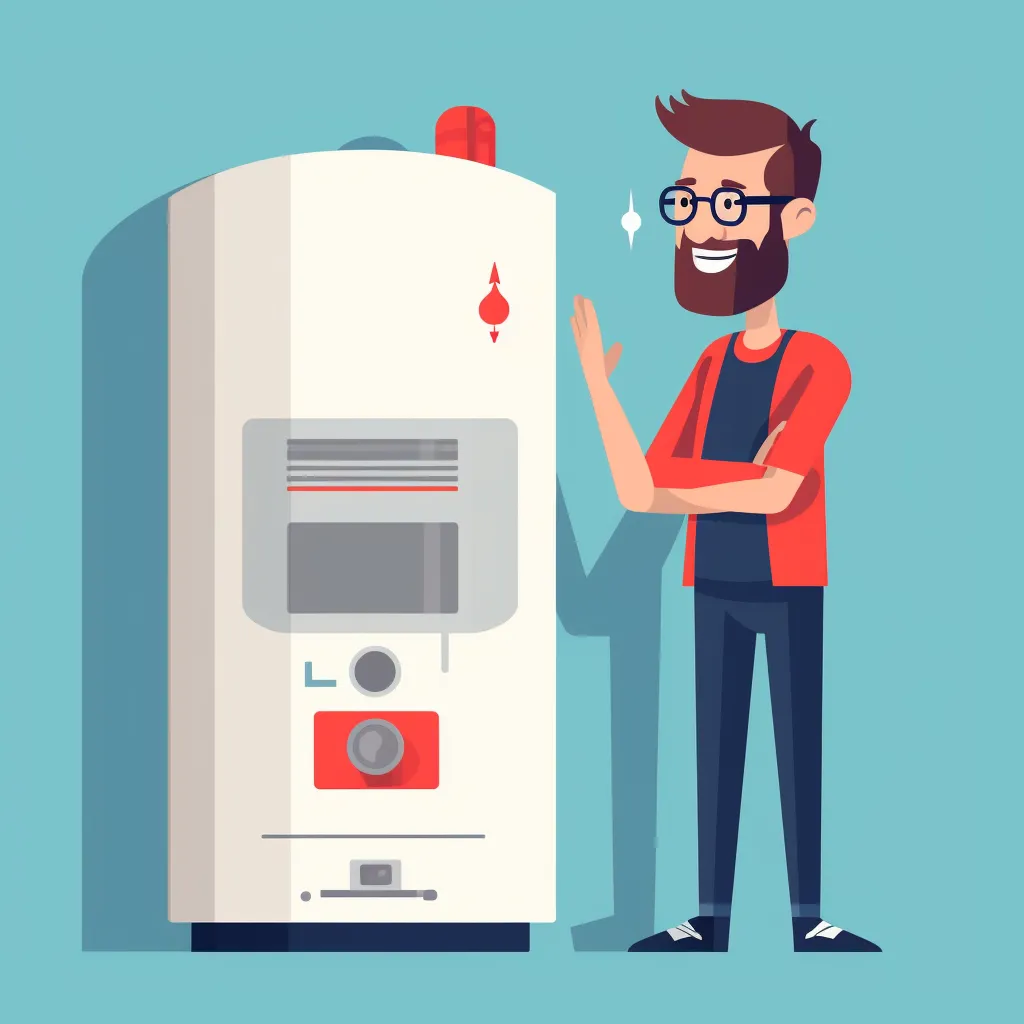
Common tankless water heater maintenance issues
While tankless water heaters offer numerous benefits, they are not exempt from maintenance concerns:
Similar to tank-based systems, sediment accumulation can occur in tankless water heaters, resulting in diminished efficiency and possible harm.
Hard water can lead to scale buildup within the heater, diminishing its effectiveness and lifespan. To combat this, it is crucial to perform descaling procedures as recommended by the manufacturer.
Tankless water heaters necessitate a higher electrical capacity compared to traditional heaters. This distinction should be taken into account when installing or upgrading the electrical system.
These types of heaters typically necessitate a larger gas line. Ensuring the secure installation of the gas line and verifying its freedom from leaks is essential to maintaining optimal functionality and safety.
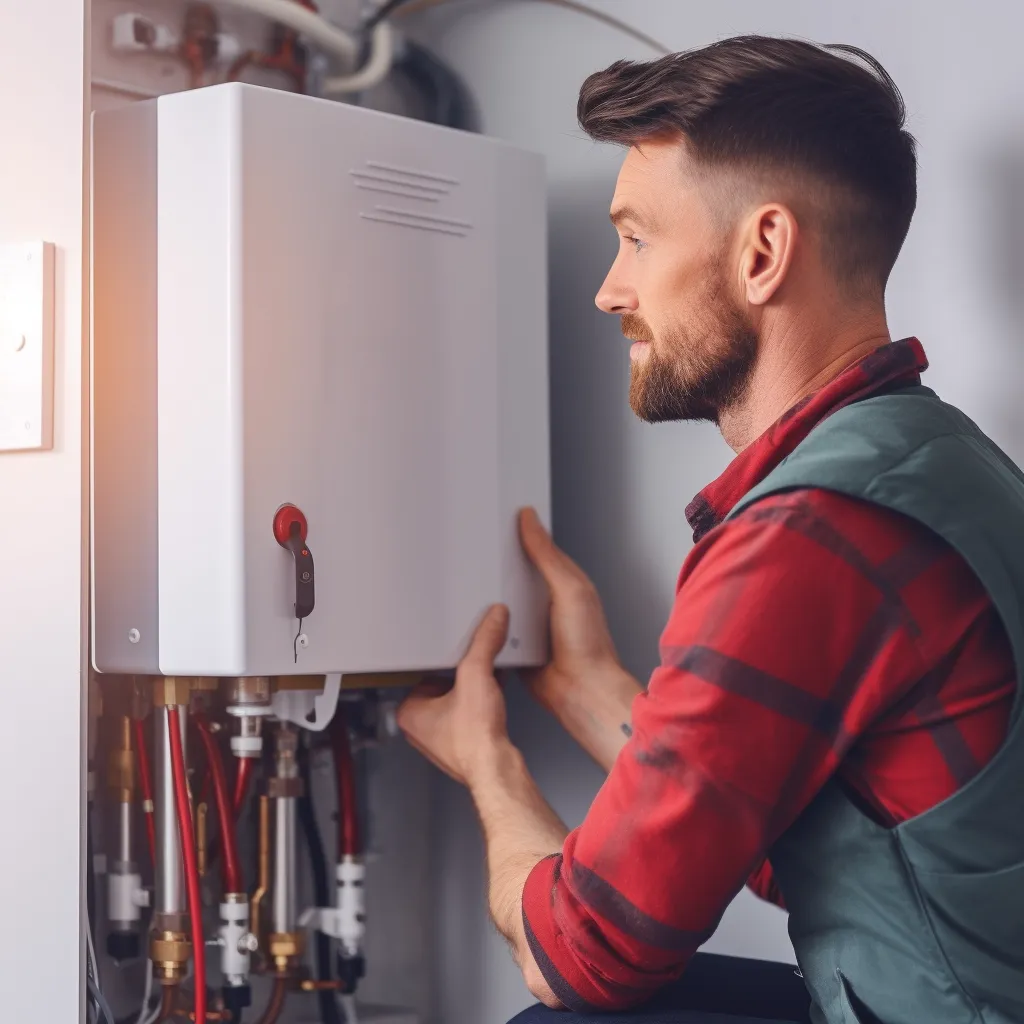
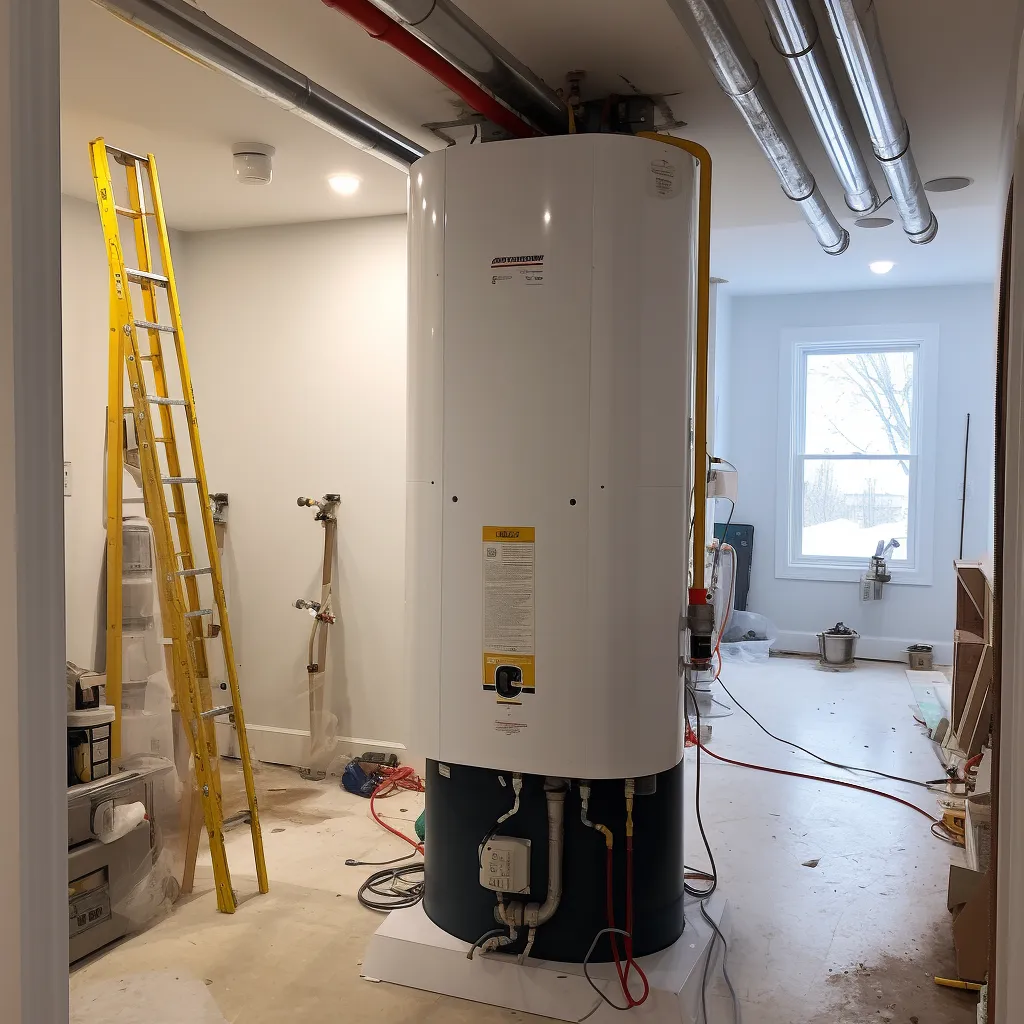
What is the lifespan of a tank water heater?
Tank water heaters have an average lifespan of 8-12 years, although this can vary depending on factors like usage, quality, and maintenance. If you start noticing certain signs, it could be an indication that your water heater is nearing the end of its lifespan. These signs include rust-colored water, leaks, a decrease in temperature, or unusual sounds. If you observe any of these symptoms, it's advisable to reach out to a professional for further assistance and guidance.
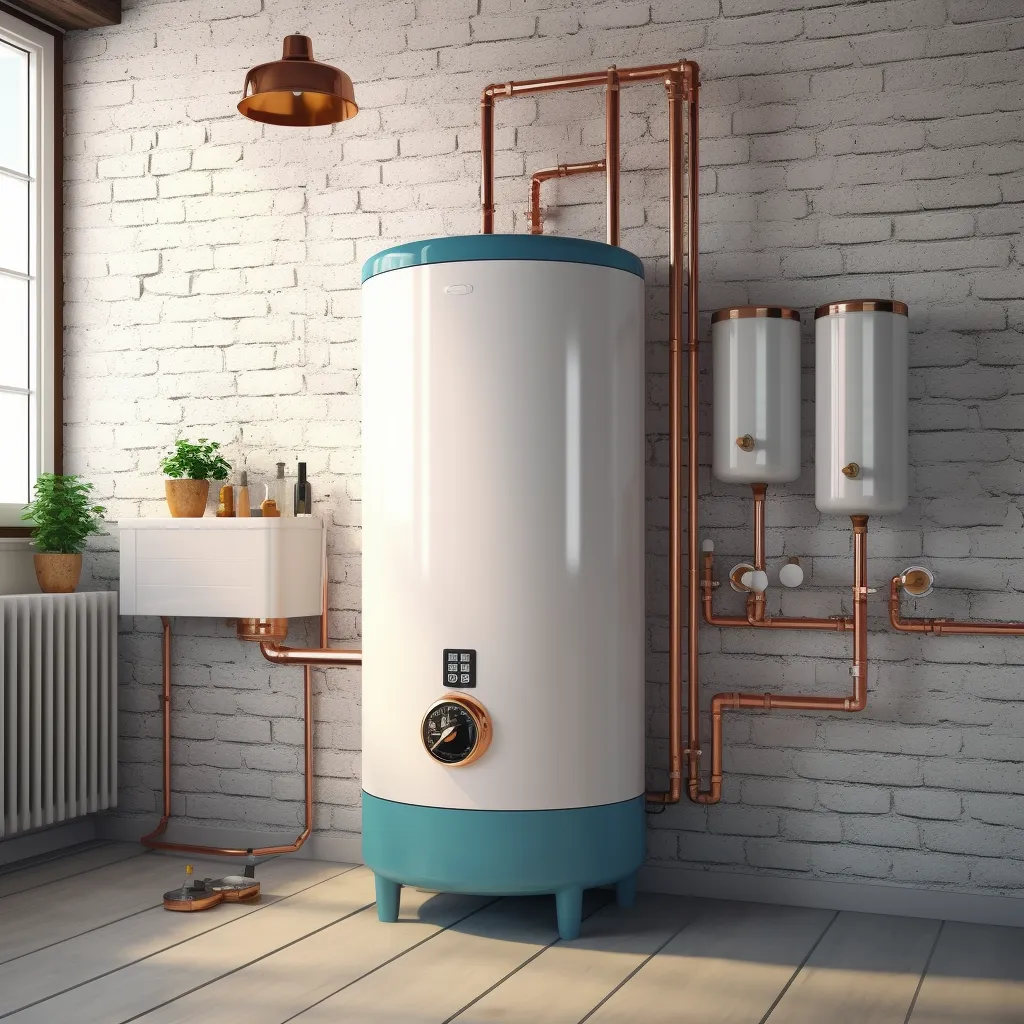
What is the lifespan
of a tankless water heater?
Tankless water heaters are an excellent choice for those seeking a budget-friendly and durable solution. These units boast an impressive lifespan of 15-20 years when properly maintained. As their popularity surges, technological advancements are expected to further improve their performance.
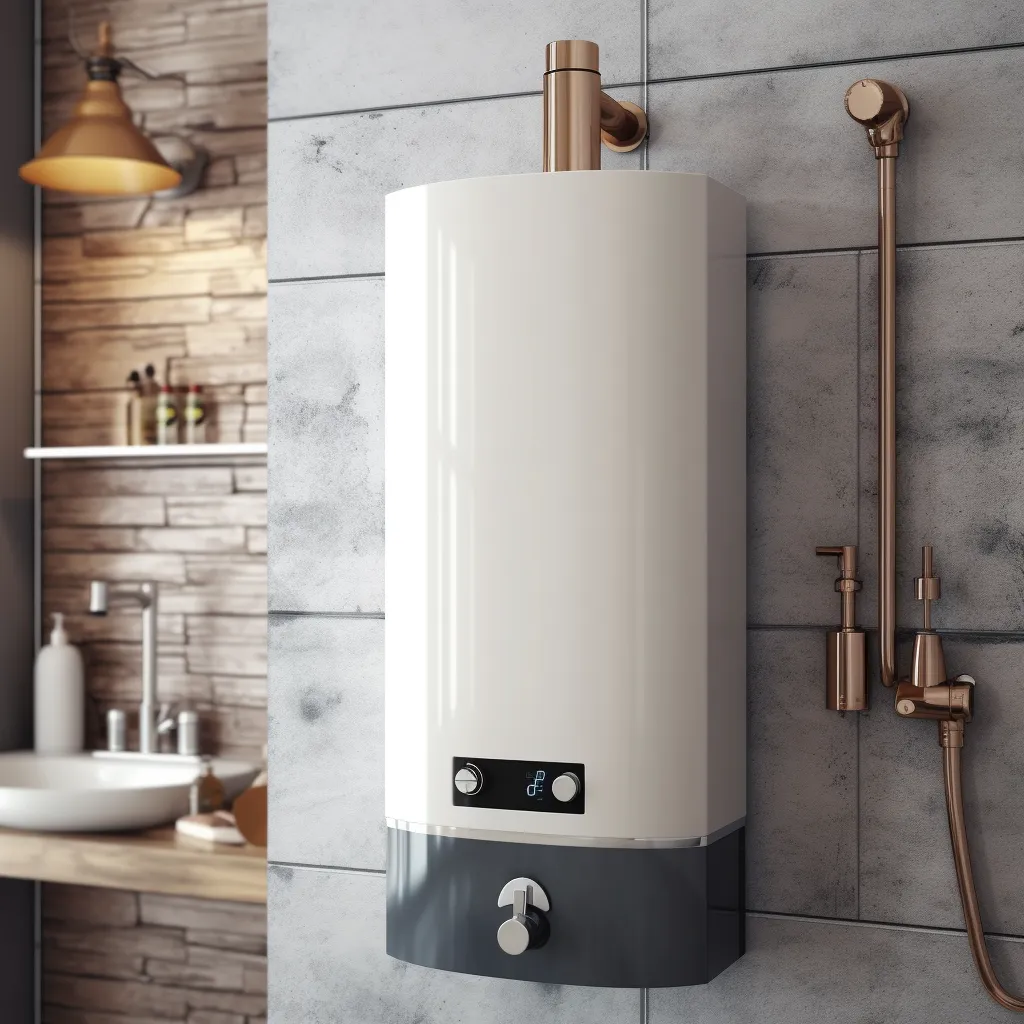
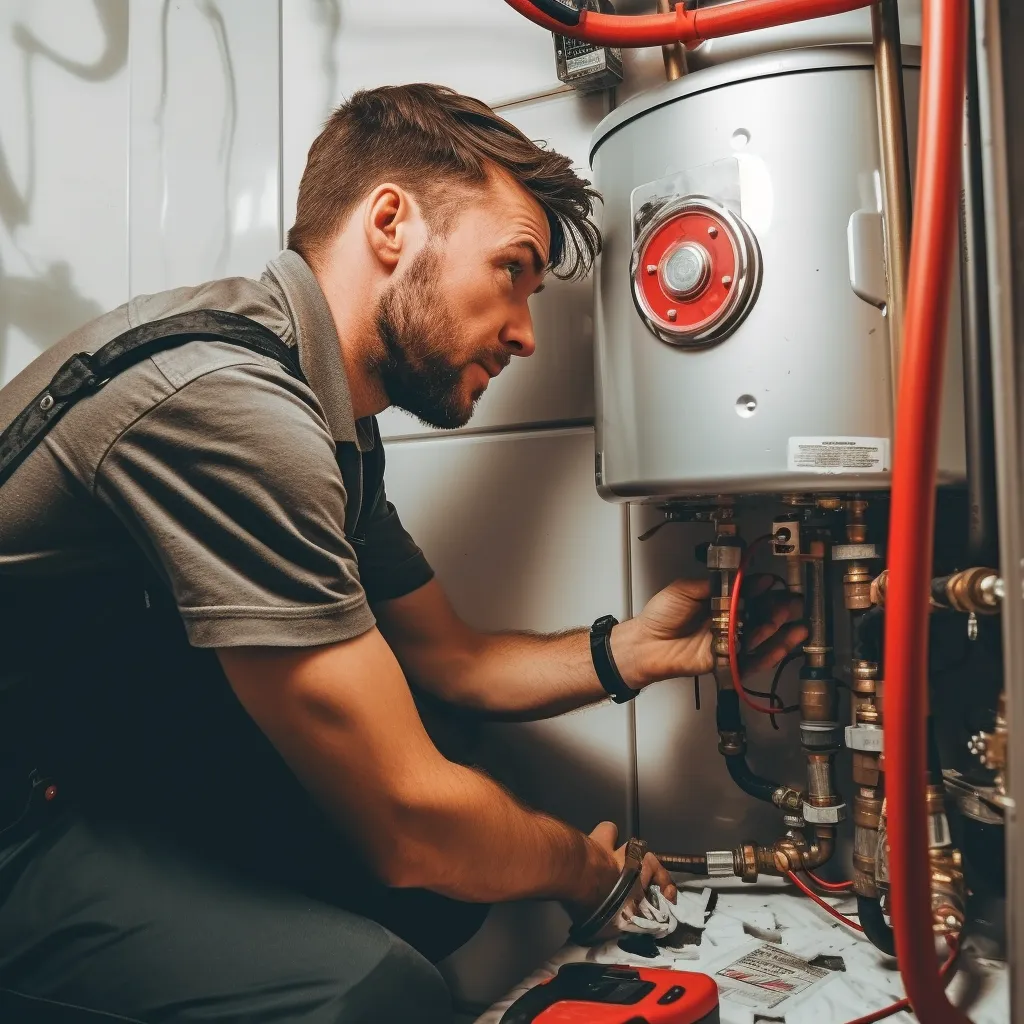
Gas vs electric water heaters
When selecting a water heater, it's essential to consider the available options: gas or electric. Gas water heaters excel in terms of faster water heating and lower operating costs. However, they do necessitate regular maintenance and access to a gas line. On the other hand, electric water heaters are comparatively easier to install but may entail higher operating expenses and longer heating times. Ultimately, your choice should be based on your specific requirements and personal preferences.
How to decide if a tankless or a tank water heater
is right for you
Several factors should be considered when choosing between a tankless water heater and a tank water heater:
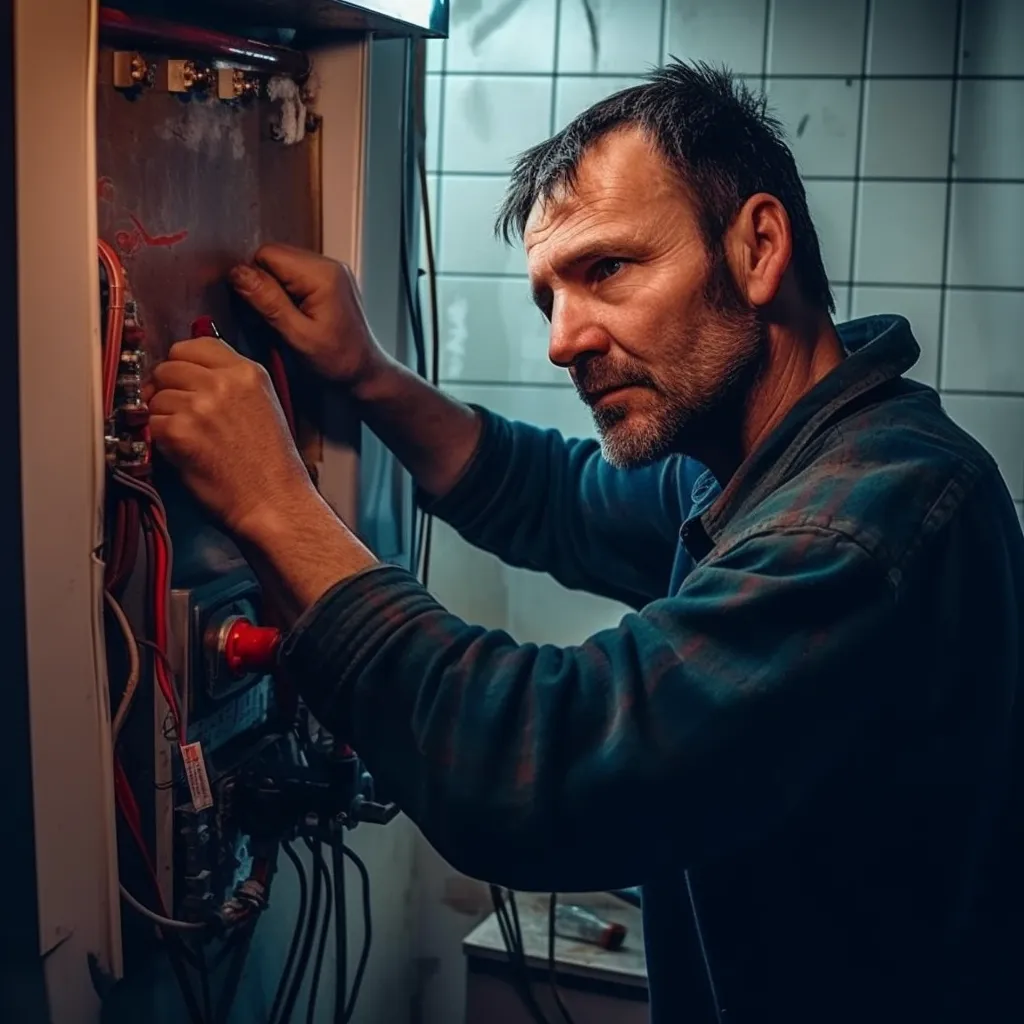
It's important to note that tankless water heaters generally have a higher initial cost than traditional tank models. You should also factor in the additional expenses related to installation and maintenance.
Evaluate your hot water usage needs. Tankless water heaters are ideal for situations where there is a continuous demand for hot water, while tank models may be sufficient for lower levels of usage and demand.
Energy efficiency ratings should also be compared between tankless and tank water heaters. This will help determine which option can offer better long-term energy savings.
Consider the climate in your area. Tankless water heaters are suitable for extreme temperatures, making them a good choice for regions with harsh climates. On the other hand, tank water heaters are often more appropriate for milder climates.
Consider the availability of space. If you have limited space, tankless water heaters are advantageous as they require less room compared to tank models.
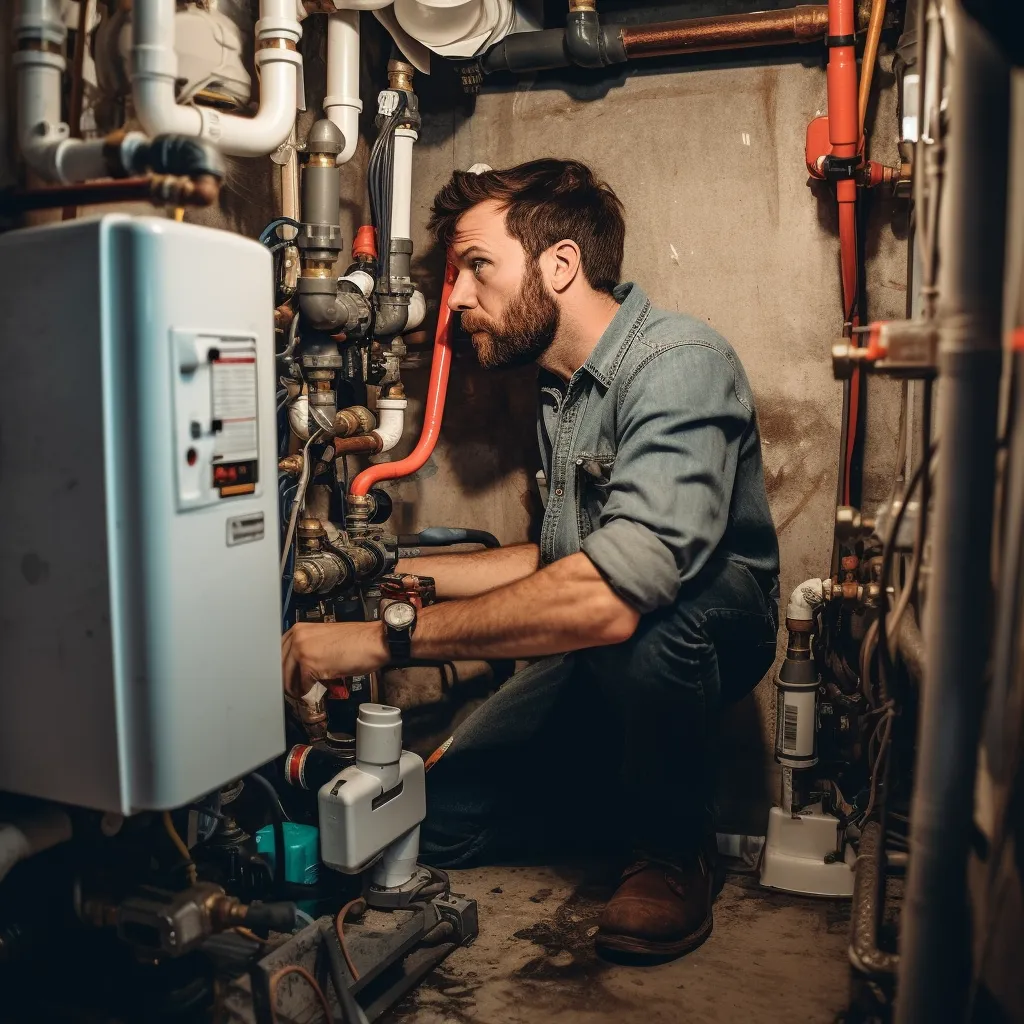
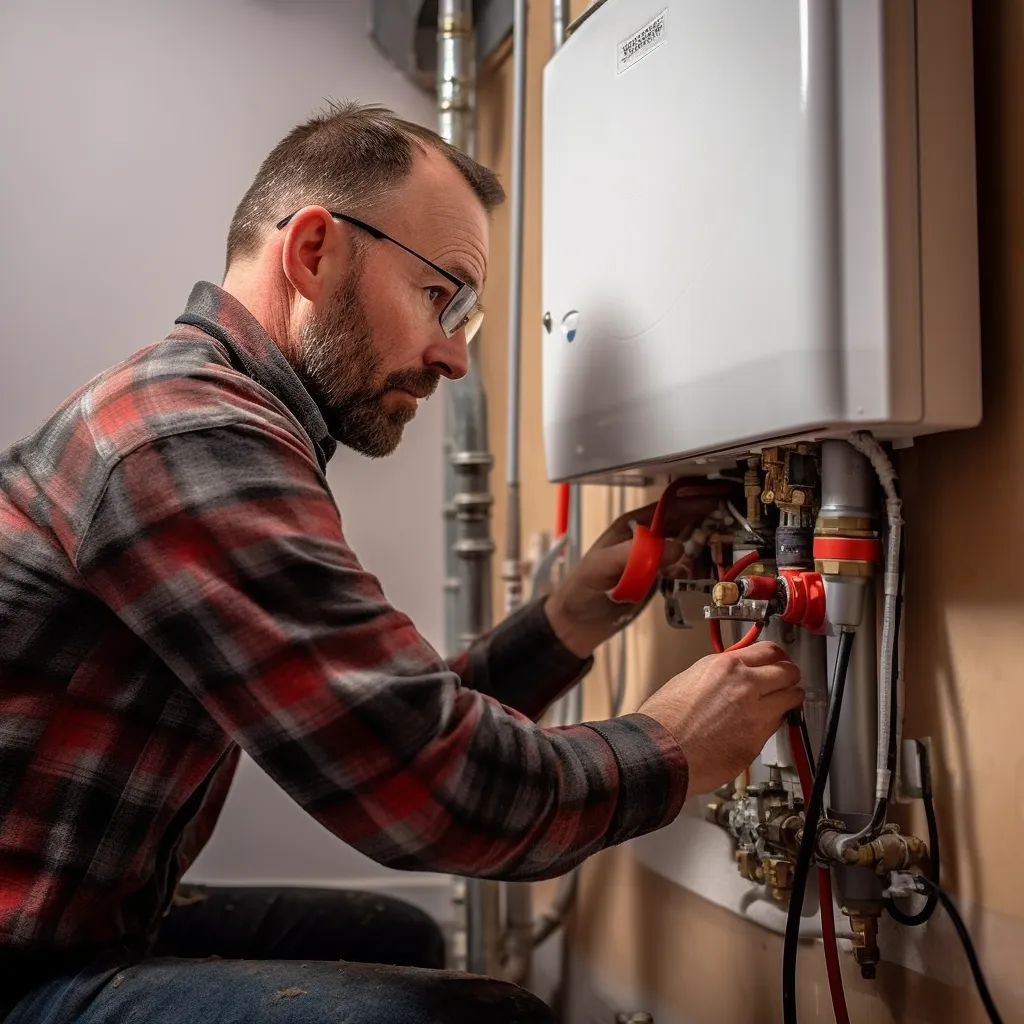
Is it important to hire a licensed professional?
When it comes to installing a new water heater, it is highly recommended to enlist the services of a licensed professional. By doing so, you can rest assured that the installation process adheres to all relevant building codes, and you'll also benefit from expert guidance regarding the most suitable type and size of water heater for your specific requirements. Opting for a professional installation not only minimizes the risk of potential hazards but also grants you peace of mind, as you can trust that the installation will be carried out accurately and safely.

Researching tankless vs tank water heaters
is important
When it comes to selecting a water heater for your residence, an essential choice awaits: tank or tankless? To ensure you make a well-informed decision, take into account your unique needs, financial considerations, and installation requirements. Prioritize conducting comprehensive research and thorough evaluation of these factors before drawing any conclusions. The installation of a new water heater can greatly influence your household, lowering energy expenses and ensuring a consistent supply of hot water. It is crucial to explore various unit types and their energy efficiency ratings to make a knowledgeable selection. We wish you the best of luck in this decision-making process!
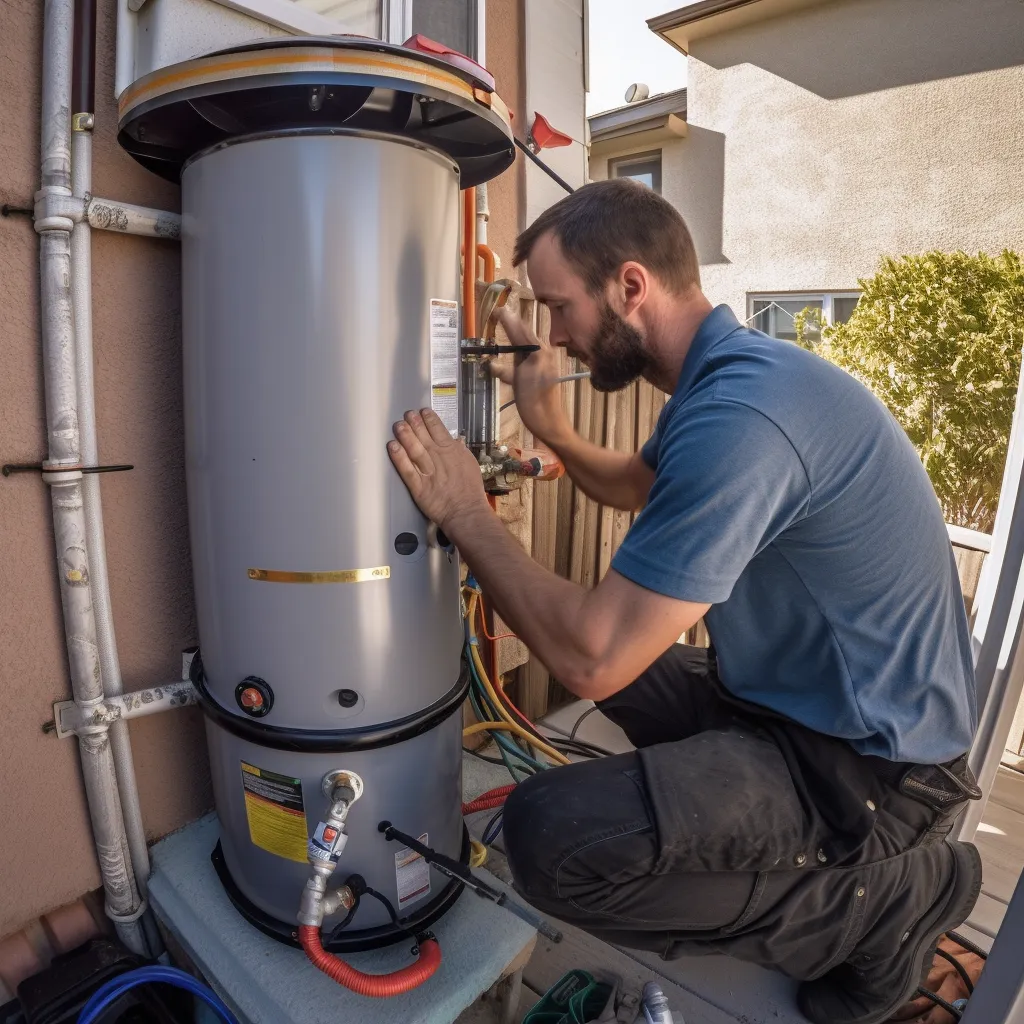
Contact Us
GET IN FULL TOUCH
PHONE:+(702) 935-6990
EMAIL:
stephen@waterheaterlasvegas.com
Las Vegas, NV 89183
